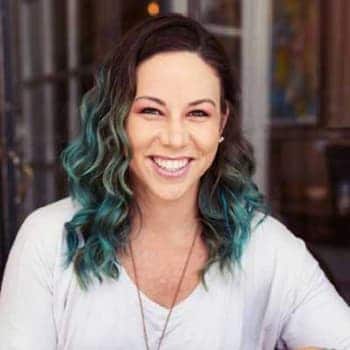A common question among those trying to get sober, and those who are foreign toaddiction and recoveryis, how do atheists and agnostics recover? It’s often thought that sobriety is equivalent with the12 steps and AA, and when people think of 12 step they think of religious language and higher powers. The thinking in Alcoholics Anonymous is that addiction is a spiritual problem that needs to be solved through the 12 steps and belief in a higher power. In fact, in the Big Book, there is a chapter dedicated to agnostics and atheists that claims by the time the book is read the person reading it will become a believer. Some people are not religious, do not believe in a power great than themselves, and therefore traditional 12-step way of life does not resonate with them. Can they still recover? Here are 4 ways atheists and agnostics recover from addiction.
1. AA for Agnostics
There is a sect of Alcoholics Anonymous specifically for agnostics, freethinkers, and atheists. They even published a book calledThe History of Agnostics in AA.AA AgnosticaandSecular AAare two groups promoting the religion-free version of AA. Secular AA groups do not recite prayers at the beginning or end of their meetings, nor do they suggest that a belief in God is required to get sober or maintain sobriety – a key difference from traditional AA. Readings at these types of meetings include traditional AA literature as well as a copy of the secular version of the 12 steps. Secular AA still maintains the principles of the 12 traditions of Alcoholics Anonymous and they encourage members to share their experience with AA as a whole through the General Service structure. They provide an international service network for the Agnostic, Atheist, and Freethinking in AA.
2. Secular Organizations for Sobriety
Commonly called S.O.S., Secular Organizations for Sobriety is a nonprofit network of groups dedicated to helping people achieve and maintain sobriety from alcohol, drug, and food addiction. S.O.S. also stands for “save our selves,” emphasizing the belief that members of S.O.S. play the biggest role in their sobriety. S.O.S. respects diversity, welcomes healthy skepticism, and encourages rational thinking. Each member takes responsibility for their individual sobriety on a daily basis. At meetings, experiences, thoughts, feelings, and understandings are shared in an anonymous setting.
3. SMART Recovery
SMART recovery is self-management for addiction recovery that includes face-to-face, as well as online meetings. Members learn recovery methods based on the latest scientific research and through self-empowering science-based mutual help groups. SMART’s 4-point program includes: building and maintaining motivation, coping with urges, managing thoughts, feelings and behaviors, and living a balanced life. Their program is based on self-reliance, self-empowerment, and self-directed change, and avoids talk about religion or a God of any kind. The techniques and information for SMART Recovery are constantly evolving with the times as new scientific information becomes available.
4. Personal recovery path
Apart from these awesome, secular recovery support groups and programs, atheists and agnostics often blaze their own trail. They may quit drinking and using drugs by finding online recovery support, reading memoirs and other informative books about addiction, reaching out to a trusted friend who is in recovery for support, using the services of a recovery coach, or just engaging in healthy living habits like doing yoga, meditating, and exercising. They might not feel like any of the typical recovery programs speak to them, or they might not have the resources or meetings available nearby to attend some of the secular groups we’ve talked about.
When I got sober in 2013 I did it on my own. I was too scared to go to AA and the necessary belief in a higher power bothered me. I decided to search the internet for help. I found countless websites that spoke about addiction, recovery, and had stories of real people living normal, fun lives in sobriety. I couldn’t believe it. People actually live without drugs and alcohol, enjoyed themselves, and share about their struggles. Could I be one of them? Blogs, books, and writing helped me get through my first year. It wasn’t until after I hit one year that I began to think about the spiritual side of life and that had nothing to do with religion or God.
Atheists and agnostics recover just like people who identify as spiritual or religious, by whichever recovery path works best for them. It may change or evolve over time, but the point is they feel included, connected, and live their best lives sober.







